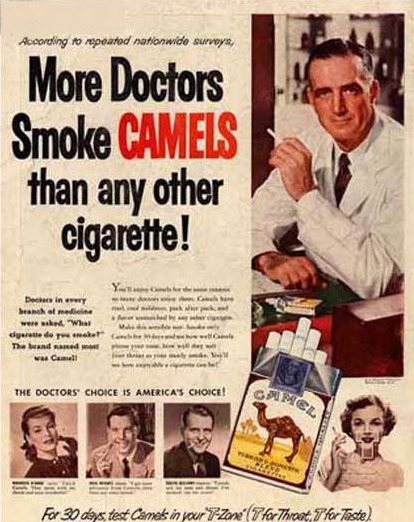To find out about personal branding, let’s start with a game. I’ll type a word, and you react. It’s not hard; in fact, I challenge you not to think anything in response to these words.
For instance, I say “Apple” you might think “Iphone”. Or “Creative”. Or maybe even “Overpriced.”
Great. Try another one: Honda. What came to mind? That concept, the mental model that forced its way to the forefront of your mind is why branding and marketing is a multibillion dollar industry. Thousands of bright people spend millions of dollars trying to hijack your thought process by creating an impression.
The thing is companies aren’t the only entities that do this. People as different as Abraham Lincoln, Oprah Winfrey and You (yes, you!) have their own brand (though Honest Abe never got to share his reading list with us…) Somewhere between reputation and demonstrated excellence resides a concept of you in the minds of others, and if you’re not cultivating that brand, you’re not doing everything you can to be successful.

When I first learned about personal branding, I had already been doing it for some time. In a presentation to our YGL chapter, John Kolm taught us to recognize, cultivate and promote our personal brand. One of the greatest influences on John’s branding philosophy is marketing master Seth Godin. In his book, Purple Cow, Godin succinctly identifies the key component of a good personal brand: remarkability. Godin asserts that in a world defined by overstimulation, noise drowns out all messages but those that are remarkable – extraordinary in such a way that you literally remark about its characteristics. Godin offers tips on remarkability at his blog here.
In my 2+ years with NIH I’ve managed to make quite a name for myself through the establishment and refinement of my personal brand. As extern to the Presdential Management Fellows program, I often encounter Young Feds who are similarly attempting to burnish their reputation. Unfortunately, intent and outcome do not always synergize, and I invariably witness people focusing tremendous effort on the wrong things. People talking just to be seen; sauntering into meetings fashionably late; addressing senior managers as collegial peers; and opining in statements that are long on authoritative tone and short on evidence and well reasoned argumentation. I call this approach “flash and trash”, and caution my mentees against it.

All style and no substance, all flash and no fundamentals can get you labelled as a shameless self promoter. Coupled with the inherent stereotype of the entitled millenial, this can damage your brand at its very core. Sleek, fast and high maintenance might be a decent brand for a car, but it can be the kiss of death for an aspiring leader. Marketing alone is not a substitute for quality: just ask Joe Camel if sleek packaging can make your brand “healthy”.
Lets be clear: there is not substitute for hard work. Remarkability isn’t just about making yourself look good. Remarkability, at its best is a “Blink” like proxy for something infinitely more worthwhile. I try to build my personal brand on things like quality, integrity and reliability, more Honda then Lamborghini. As the own best steward of your fledgling career, your strategy should be elegant and simple: seize opportunities, capitalize on them through remarkable achievement and leverage them to create new opportunities. Wash, rinse, repeat, rise. At the end of the day it’s quality that makes the brand, not the other way around.



Good stuff, Dave!
I echo that..
I agree – it’s important to develop that personal brand. I agree with Dave my general strategy is to do good work, help people out, and meet and stay in touch with other interesting people in my field.
And always always always tell the truth. I have had several situations where, frankly, I screwed something up. In that situation, one’s first instinct is to fudge about it, try to deflect blame, makes excuses etc. One of the hardest things to learn, but one of the most important, is when you goof up, ‘fess up. I think I have gained more credibility from walking into a meeting and saying, “Sorry, I screwed this project up. Here’s what I can do to fix it.” It’s much better than to try to evade the issue. People learn that they can trust you on things because you are the first one to call yourself out if something has gone wrong, and they know you are never trying to hide anything. And let’s face, we all make mistakes in this life, so its no use pretending you don’t. A favorite saying of mine, and I don’t know who came up with it is: “Good judgment comes from experience. Experience comes from having bad judgment.”
Good point, Jerry. Humility goes a looooong way.
Thanks Dave – Those are very interesting points. I think most of us have encountered the shallow self promoters and know how incredibly frustrating they can be to have on your team. The interesting part to me is the substantive self promoters that I’ve encountered in government – -the innovative problem solvers who know how to deliver the goods and sell themselves the right way.
@Jerry – one of my favorite sayings is “Experience is what you get right after you need it”.
You’re right, the hardest thing to do – but probably the best thing to do for yourself and for your career – is to take a deep breath and ‘fess up. We all do it – mess up, that is – so I think we all know exactly what you’re thinking about: that lead-weighted, sinking feeling in the pit of your stomach… ugh. Looking back, I have had many, many people who have been incredibly patient with me over my career, and I hope that I am demonstrating the same patience with them.